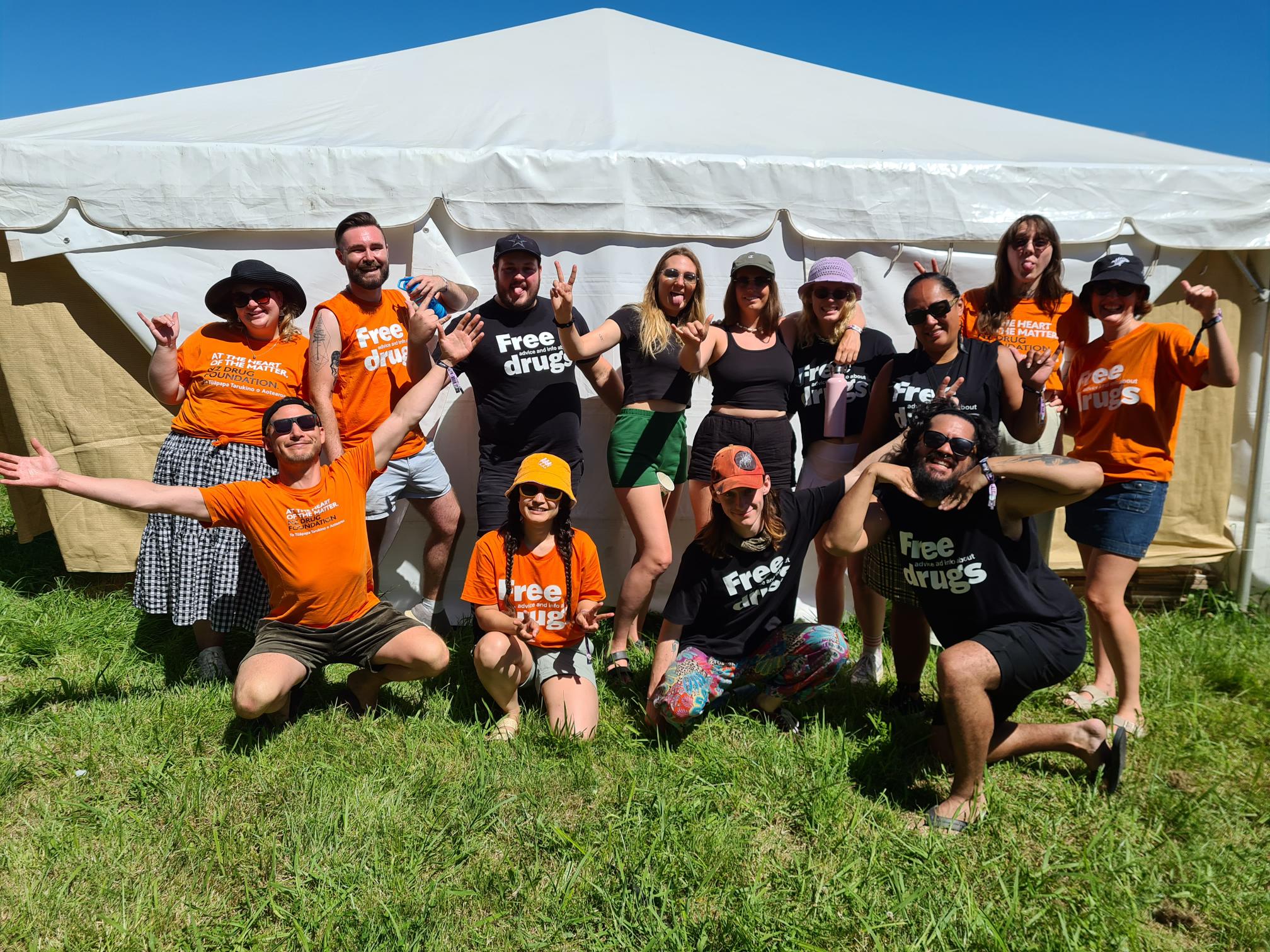
Drug checking is a free and legal process that helps people find out what’s really in their drugs, so they can make informed decisions about if, when and how they take those drugs.
The Level is run by the NZ Drug Foundation, and 2022 was our first full year as a licensed drug checking provider. We ran 73 clinics and checked 1720 samples. That’s a whole lot of drug harm reduction!
We work alongside two other brilliant organisations that provide public drug checking – KnowYourStuffNZ, who pioneered the service, and the New Zealand Needle Exchange. Science lab ESR provides invaluable confirmatory testing and extra scientific services.
We ran clinics right across the country. If you're looking for drug checking near you, head to our calendar.
Here's what we found at our drug checking clinics in 2022.
A third of drugs were completely or partially different from what people thought
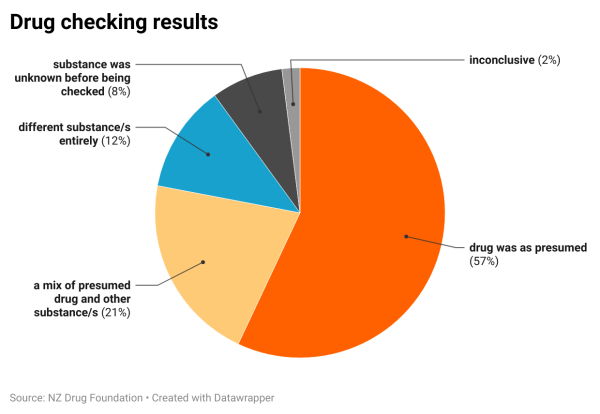
Most people thought they had MDMA…
MDMA was the most common drug people thought they had - making up 59% of the total samples that people brought in for us to test.
The next most common presumed drugs were amphetamines at 5% (methamphetamine 4%, other amphetamines 1%), cocaine at 5%, ketamine at 4%, LSD at 4% and cannabis at 4%.
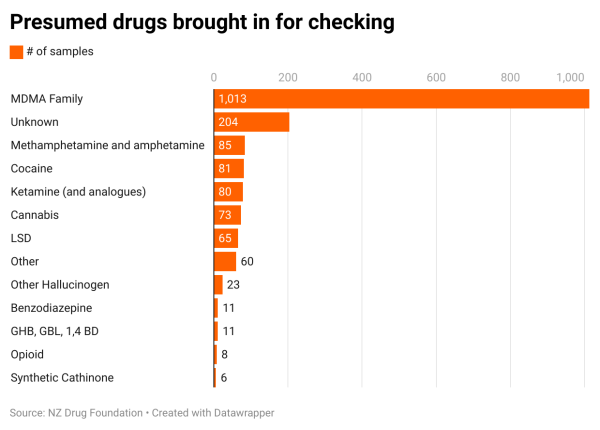
…and MDMA was the most commonly found substance.
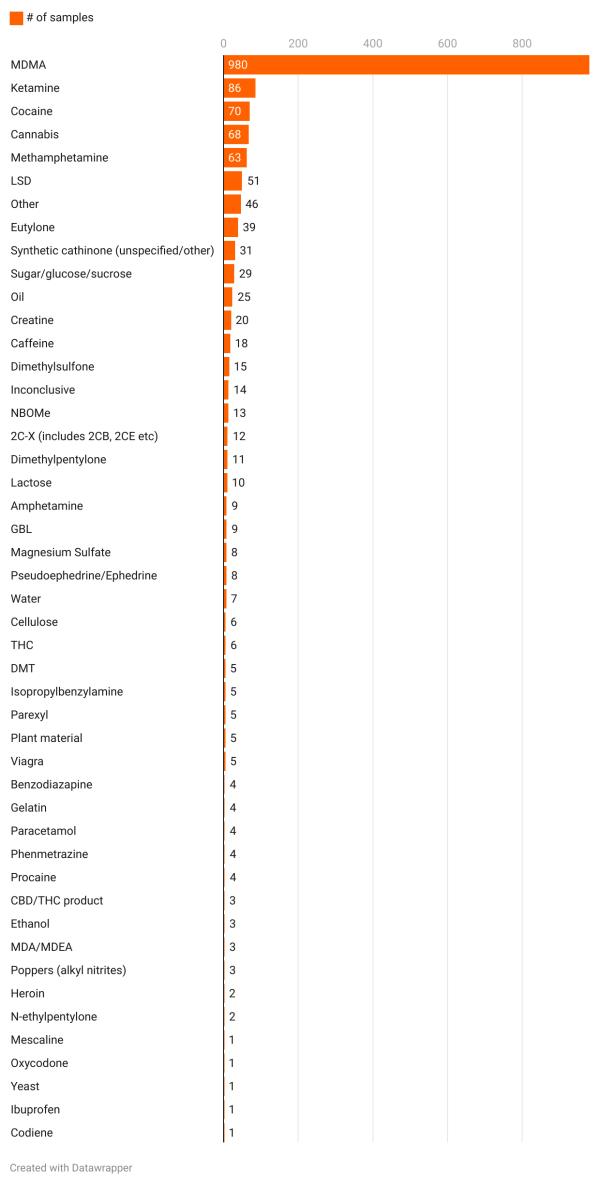
But we also found concerning substances, such as:
25B-NBOH and other possible NBOMes:
Drug checking at Rhythm & Vines festival found 25B-NBOH sold as LSD. 25B-NBOH is a potent stimulant and psychedelic related to NBOMe, a group of substances that has been linked to multiple deaths overseas. We put out some more info on 25B-NBOH on our social media channels.
Isopropylbenzylamine in meth:
Isopropylbenzylamine can be mixed with or used as a substitute for meth. Isopropylbenzylamine may produce headaches and other uncomfortable effects.
Novel synthetic cathinones like cyputylone and d-tertylone:
Cathinones are a group of stimulants, often sold as MDMA. New synthetic cathinones are concerning because their effects and risks aren’t well documented.
Novel benzodiazepines (benzos):
Benzodiazepines are a group of depressant drugs. Some benzodiazepines can be prescribed by a doctor. Novel benzodiazepines are active in very tiny doses, which can pose a risk of overdose.
46% of people said they wouldn’t take a drug after finding out it wasn’t what they expected.
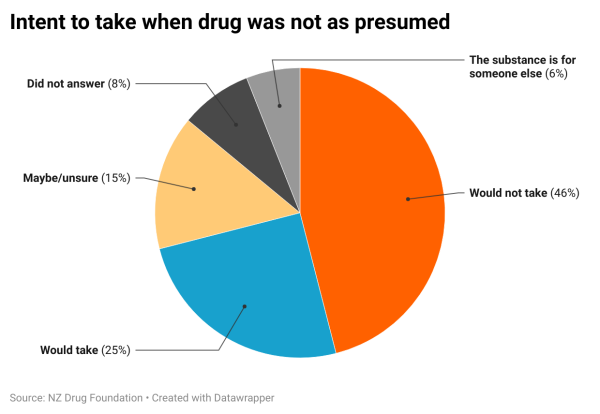
People take drugs in all kinds of ways.
One of the questions we ask people is how they might use their drug if they choose to take it.
Most people (61%) said they would swallow it - either by itself, in a capsule, in a drink or parachuting (wrapping the substance in something like rice paper and swallowing it).
19% said they would snort the drug. 5% would smoke or vape, 5% did not answer, 4% would take sublingually (under the tongue), 3% would inject, 2.5% were unsure and 0.5% would take transdermally (on the skin, for substances that can be absorbed this way).
Remember, most of our samples were of MDMA - which affects the overall stats on how people are taking drugs. However you're using, there are always ways to be safer, which leads us to...
People take measures to keep themselves safer when taking drugs.
Every client who accesses our service has a harm reduction conversation with our team. Here are the most common ways people told us they’d reduce drug harm:
- 29% told us that they would test any other substances they were using
- 29% told us that they would now take a lower dose than they had originally thought
- 27% told us that they would avoid mixing with alcohol, other drugs or medicines
- 23% told us they would use with other people around or a ‘trip sitter’
- 19% told us they would now use a lower risk method of use
- 15% told us that they would do more research on the substance before taking it
- 8% told us that they would not re-dose (take more after taking their first dose) at all
(Note: most people said they’d do more than one of these - ka rawe!).
Thanks for bringing us your drugs to check!
Not only does drug checking help you make informed decisions about the drugs you're planning to take, it helps us keep an eye on trends and concerning drugs coming through the market. So if you've come along to a drug checking clinic in 2022, thank you! We couldn't do it without you, and we love chatting to you about staying safer.
Download the full report here.
Related stories
Recent stories
What is tusi (pink cocaine)?
It's pink, but it isn't cocaine or 2C-B. Here's what you need to know about tusi or pink cocaine.
What to do if your drink has been spiked
Here's what to do and support services you can contact if you think your drink has been spiked.
What is opioid substitution treatment?
Opioid substitution treatment is where people who are addicted to opioids (like heroin or morphine) can get a safer medicine instead.